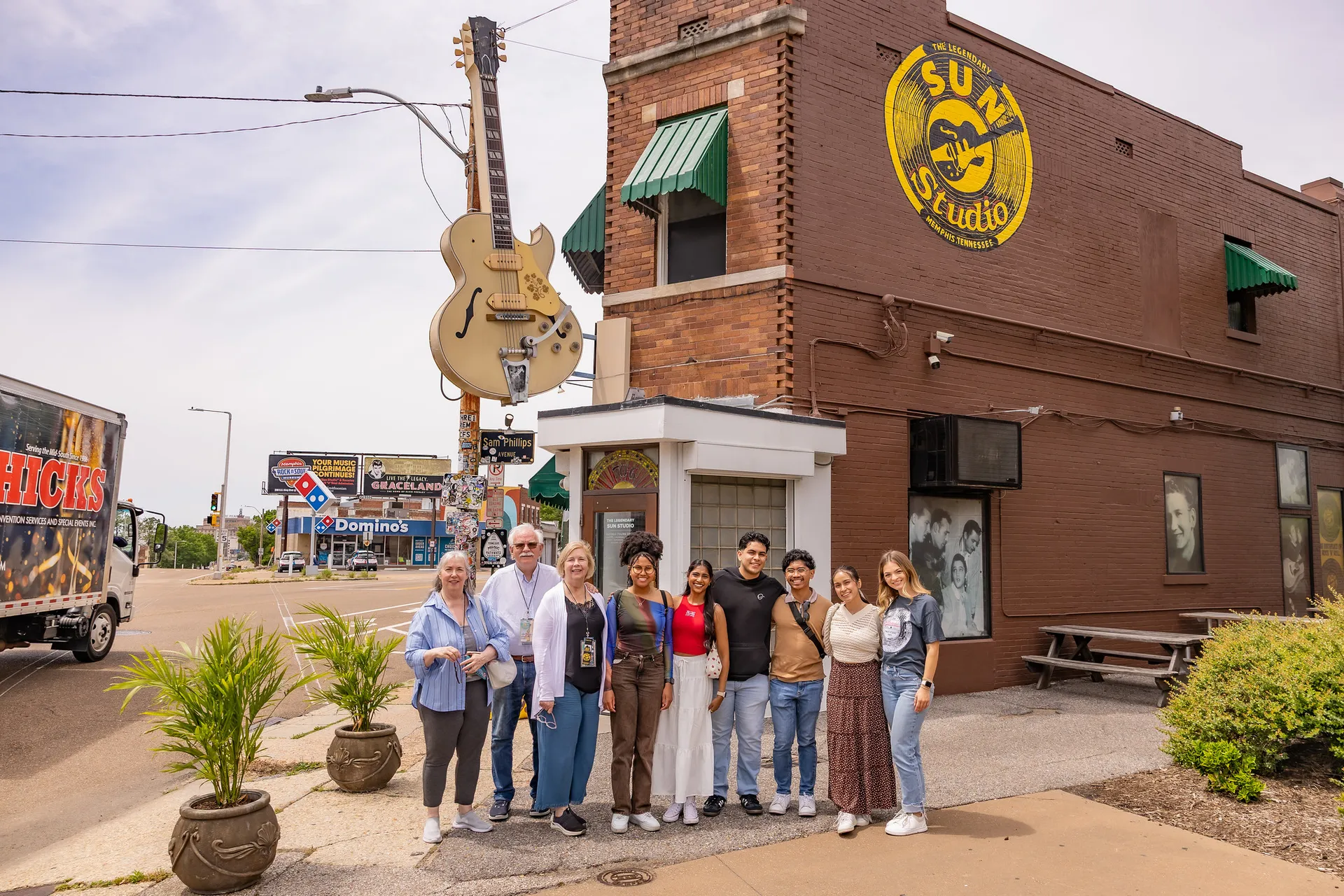The Honors Journey Through the Roots of American Music
May 29 2025 - 11:45am
By: Dr. Renard Doneskey
As I write this, I’m in an AirBnB in New Orleans, waiting for the students to get ready to go to Gospel Brunch. What better way to celebrate Mother’s Day than with good music and good food, which will certainly remind me of my own mother and father who raised me both with food for the body but also food for the spirit in the form of music in our home.
The Honors Program is on a tour of Memphis, Nashville, and New Orleans. This year six students, two faculty, and several guests are learning more about the history of the musical genres of gospel, blues, and jazz and also learned how musicians worked hand in glove with the civil rights movement in the 1950s and 60s.
Our first stop was in Memphis, where gospel music was played over the country’s first black-owned radio station. Such music strongly influenced other musicians, especially blues guitar players, who often made the trip up the river from the Mississippi Delta to Memphis. They played on street corners and many made records, making Memphis the most important musical city in America at one time. We were joined in Memphis by Pastor Russ Laughlin, who stayed with us for the next four days as we went to several museums devoted to our unique American musical heritage, but we also visited the National Civil Rights Museum, which has been built on the spot where Martin Luther King, Jr. was assassinated. We also visited Graceland, former home of Elvis Presley, who has sold more records than any other person. Yes, we saw the Jungle Room and it’s just as strange as you have heard.
Our next stop was Nashville, music-city USA, with a guided tour of the Ryman Auditorium. Our guide just loved his job and proudly displayed all the photos of the hundreds of stars, past and present, who have played in the Ryman, originally constructed as a church and then reconfigured into a musical stage. We took in a concert of country music, performed by many musicians, the last being Grammy award winner Ricky Skaggs. The following morning we went to the Country Music Hall of Fame (I particularly enjoyed the exhibit on 70s LA musicians) before hopping back on the van and heading for New Orleans.
On Sabbath we joined the worshipers at United Fellowship Seventh-day Adventist church in New Orleans, a very warm and welcoming congregation that helped us feel right at home. Music ties people together, and we heard wonderful music there and joined in the singing of the praise songs.
And today, Sunday, is a busy day with brunch, beignets at Cafe du Monde, and an evening concert in the Preservation Hall, listening to the famous Dixieland jazz band there. On Monday we wrap up our events with lunch aboard the steamboat the Natchez, while listening to their jazz band. We will cap the tour with supper at the vegetarian restaurant, True Food, before turning in for the night and returning to Southwestern on Tuesday.
Meanwhile, I have written the last three questions for the students’ final exam in the class. Here’s the last question: “At Preservation Hall we enjoyed the music of the Preservation Hall Jazz Band. In introducing the musicians, the pianist mentioned that several of the group were 5th generation musicians, and everyone was at least a 2nd generation musician. Given that the oldest musician was 93, and the youngest (the bass player) was probably 26 or 27, explain how jazz seems to transcend ages and appeals to diverse people of all ages.” As I have repeatedly told the students, we aren’t just tourists; we are students, so the traveling we do supports the learning we do.
View the Honors Study Tour 2025 - American South photo album.
